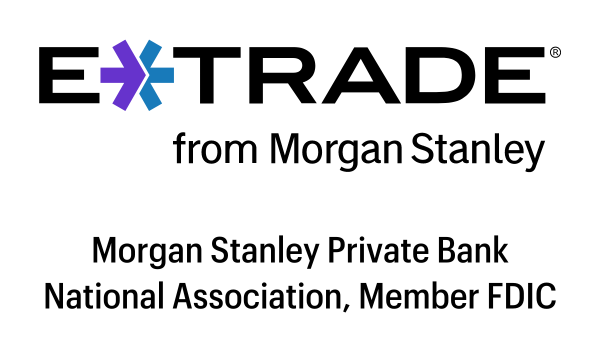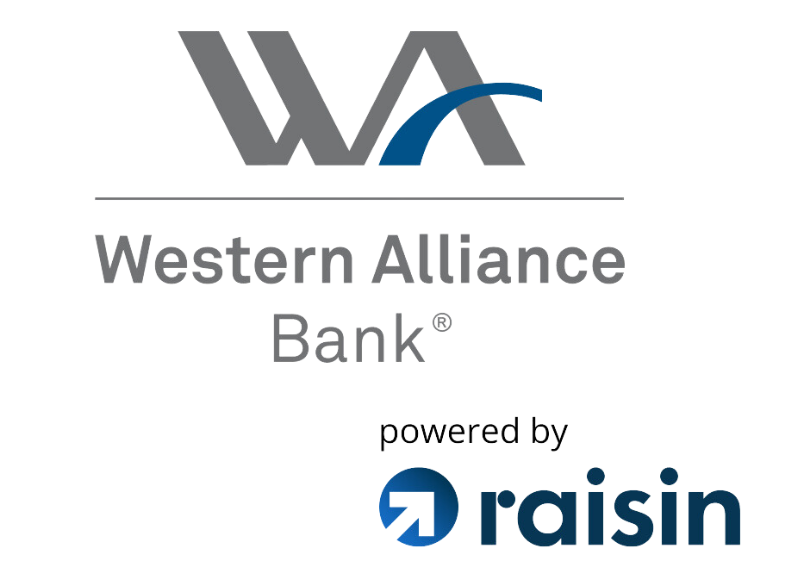Brokered CDs can be a low-risk way to diversify your investments, and E*TRADE CD rates make the brokerage a competitive option. Investors may also want to consider brokered CDs from E*TRADE if they are looking to avoid hitting FDIC coverage caps with any single bank.
There are a few downsides to brokered CDs you won't get with a regular CD, however, so read our full E*TRADE CD review to see all the pros and cons.
E*TRADE CD rates for 2025
APY = Annual Percentage Yield

E*TRADE tends to offer pretty competitive CD rates for a variety of terms from six months all the way up to five years. No minimum deposit requirement makes these CDs friendly for even small investments. Member FDIC.
| 6 Mo. APY | 9 Mo. APY | 1 Yr. APY | 1.5 Yr. APY | 2 Yr. APY | 3 Yr. APY | 5 Yr. APY |
|---|---|---|---|---|---|---|
| 4.25% | 4.25% | 4.25% | 3.90% | 3.80% | 3.60% | 3.50% |
Is a high-yield savings account a better option for you?
A high-interest savings account offers rates competitive with the best CDs accounts, but without having to lock your money away for months or even years at a time. Here are some top-rated high-yield savings account options from our experts.
| Account | APY | Promotion | Next Steps |
|---|---|---|---|

Open Account for American Express® High Yield Savings
On American Express's Secure Website.
Rating image, 4.00 out of 5 stars.
4.00/5
Our ratings are based on a 5 star scale.
5 stars equals Best.
4 stars equals Excellent.
3 stars equals Good.
2 stars equals Fair.
1 star equals Poor.
We want your money to work harder for you. Which is why our ratings are biased toward offers that deliver versatility while cutting out-of-pocket costs.
|
3.70%
Rate info
3.70% annual percentage yield as of April 5, 2025. Terms apply.
Min. to earn: $0
|
N/A
|
Open Account for American Express® High Yield Savings
On American Express's Secure Website. |

Open Account for CIT Platinum Savings
On CIT's Secure Website.
Rating image, 4.50 out of 5 stars.
4.50/5
Our ratings are based on a 5 star scale.
5 stars equals Best.
4 stars equals Excellent.
3 stars equals Good.
2 stars equals Fair.
1 star equals Poor.
We want your money to work harder for you. Which is why our ratings are biased toward offers that deliver versatility while cutting out-of-pocket costs.
|
4.10% APY for balances of $5,000 or more
Rate info
4.10% APY for balances of $5,000 or more; otherwise, 0.25% APY
Min. to earn: $100 to open account, $5,000+ for max APY
|
Earn a bonus of at least $225 after a one-time deposit of $25,000+.
Transfer a one-time deposit of $25,000-$49,999.99 for a bonus of $225. Transfer a one-time deposit of $50,000+ for a bonus of $300. Account must be opened with code PS2025 while this promotion lasts, and funded within 30 days. Bonus will be fulfilled within 60 days from the funding date. There is no period of time where the customer will be required to maintain the funds. Account must be open when bonus is credited. One bonus per account and primary customer. Bonus will be credited into the Platinum Savings Account that fulfills the funding requirement. Funding can be deposited all at once or incrementally.
|
Open Account for CIT Platinum Savings
On CIT's Secure Website. |

Open Account for Capital One 360 Performance Savings
On Capital One's Secure Website.
Rating image, 4.50 out of 5 stars.
4.50/5
Our ratings are based on a 5 star scale.
5 stars equals Best.
4 stars equals Excellent.
3 stars equals Good.
2 stars equals Fair.
1 star equals Poor.
We want your money to work harder for you. Which is why our ratings are biased toward offers that deliver versatility while cutting out-of-pocket costs.
|
3.70%
Rate info
See Capital One website for most up-to-date rates. Advertised Annual Percentage Yield (APY) is variable and accurate as of Feb. 6, 2025. Rates are subject to change at any time before or after account opening.
Min. to earn: $0
|
N/A
|
Open Account for Capital One 360 Performance Savings
On Capital One's Secure Website. |
Compare E*TRADE CD rates
The APY (annual percentage yield) you'll get on a brokered CD through E*TRADE will depend on the specific CD and bank you choose. Unfortunately, E*TRADE doesn't publish rates publicly anywhere that we could find, so you'll likely need to have an account to see specific rates. In general, brokered CDs tend to have high APYs at least comparable to our top CD rates.
| Bank & CD Offer | APY | Term | Min. Deposit | Next Steps |
|---|---|---|---|---|
|
Discover® Bank CD
Member FDIC.
Open Account for Discover® Bank CD
On Discover Bank's Secure Website. |
APY:
4.00%
|
Term:
1 Year
|
Min. Deposit:
$0
|
Open Account for Discover® Bank CD
On Discover Bank's Secure Website. |
|
APY:
4.50%
|
Term:
10 Months
|
Min. Deposit:
$2,500
|
Open Account for
On Secure Website. |
|
|
APY:
4.30%
|
Term:
6 Months
|
Min. Deposit:
$1
|
Open Account for
On Secure Website. |
Details about E*TRADE CDs
As a brokerage, E*TRADE doesn't offer typical bank CDs. Instead, you can purchase brokered CDs through your investment account.
Brokered CDs
You can purchase brokered certificates of deposit (CDs) from any number of hundreds of banks through your E*TRADE investment account. Brokered CDs are generally the same as a regular bank CD: You purchase the CD with a set value, and it earns interest until it matures.
However, unlike regular bank CDs, which accrue and compound the interest earned, brokered CDs use simple interest and pay out your interest income at regular intervals. (This could be a pro or con depending on how you look at it.)
Brokered CDs can also offer significantly longer maturities, with options up to 30 years not uncommon. (In contrast, CDs from regular banks tend to max out at 5-year CDs.)
Additionally, brokered CDs can be sold on the secondary market before they mature if you want your money back, with no early withdrawal penalties. That said, there's no guarantee that you'll find a seller, and if interest rates have risen, you may need to sell for less than the purchase price.
Pros
- Potentially competitive APYs
- Huge range of maturity options
- No early withdrawal penalty when sold
Cons
- No guarantee of value when sold on secondary market
- Callable CDs can be redeemed by bank prior to maturity
How to open an E*TRADE CD
To purchase brokered CD through E*TRADE, you'll need to open an investment account. You can do this online in about 10 minutes. You can open an account through etrade.com, or through the E*TRADE mobile app. You'll then need to connect to a bank account to fund your investment account.
Once you have a funded E*TRADE investment account, you can purchase a brokered CD through the Bonds & CDs section. You'll see a list of available CDs, including the issuing bank, interest rate, and maturity date. (If you want only non-callable CDs, be sure to toggle that filter.)
After you choose the CD you want to purchase, click "Buy" to review and complete your order.
Who is an E*TRADE CD right for?
A brokered CD from E*TRADE could be a good choice for investors who want a low-risk way to diversify their portfolio. It may also be a good choice for existing E*TRADE customers who want to purchase CDs from multiple banks from their brokerage account to avoid triggering FDIC coverage caps.
Keep reading about E*TRADE:
Our CDs methodology
At Motley Fool Money, certificates of deposit (CDs) are rated primarily focusing on annual percentage yield (APY) and early withdrawal penalty fees. Our highest-rated CDs generally include competitive APYs without complex qualification tiers, low withdrawal fees, reliable brand trust and reputation, and ease of use.
Learn more about how Motley Fool Money rates bank accounts.
FAQs
-
Brokered CDs are certificates of deposit that are purchased through a brokerage firm rather than directly from the bank. Unlike regular CDs, brokered CDs tend to pay out interest regularly instead of accrue and compound the interest. Rates can also be higher than traditional CDs.
Additionally, brokered CDs can generally be sold on the secondary market to get your money back early. The drawback is that you're not guaranteed to find a buyer and you may need to sell for less than the purchase price.
-
Yes, though somewhat indirectly. Brokered CDs are issued by a bank but sold by a brokerage. So, while E*TRADE is not a bank or member of the FDIC, the banks that actually issue the CDs (ideally) are members. This means the CDs have FDIC coverage through the issuing bank (up to the legal maximum of $250,000 per individual per institution).
-
Yes, brokered CDs are generally considered to be a low-risk investment. However, if you cannot hold it to maturity, there is a risk that you will lose money selling it on the secondary market if rates increase. Also, some brokered CDs are callable, meaning the bank can choose to call it in early and refinance if rates decrease.
We're firm believers in the Golden Rule, which is why editorial opinions are ours alone and have not been previously reviewed, approved, or endorsed by included advertisers. Motley Fool Money does not cover all offers on the market. Motley Fool Money is 100% owned and operated by The Motley Fool. Our knowledgeable team of personal finance editors and analysts are employed by The Motley Fool and held to the same set of publishing standards and editorial integrity while maintaining professional separation from the analysts and editors on other Motley Fool brands. Terms may apply to offers listed on this page. APYs are subject to change at any time without notice.


